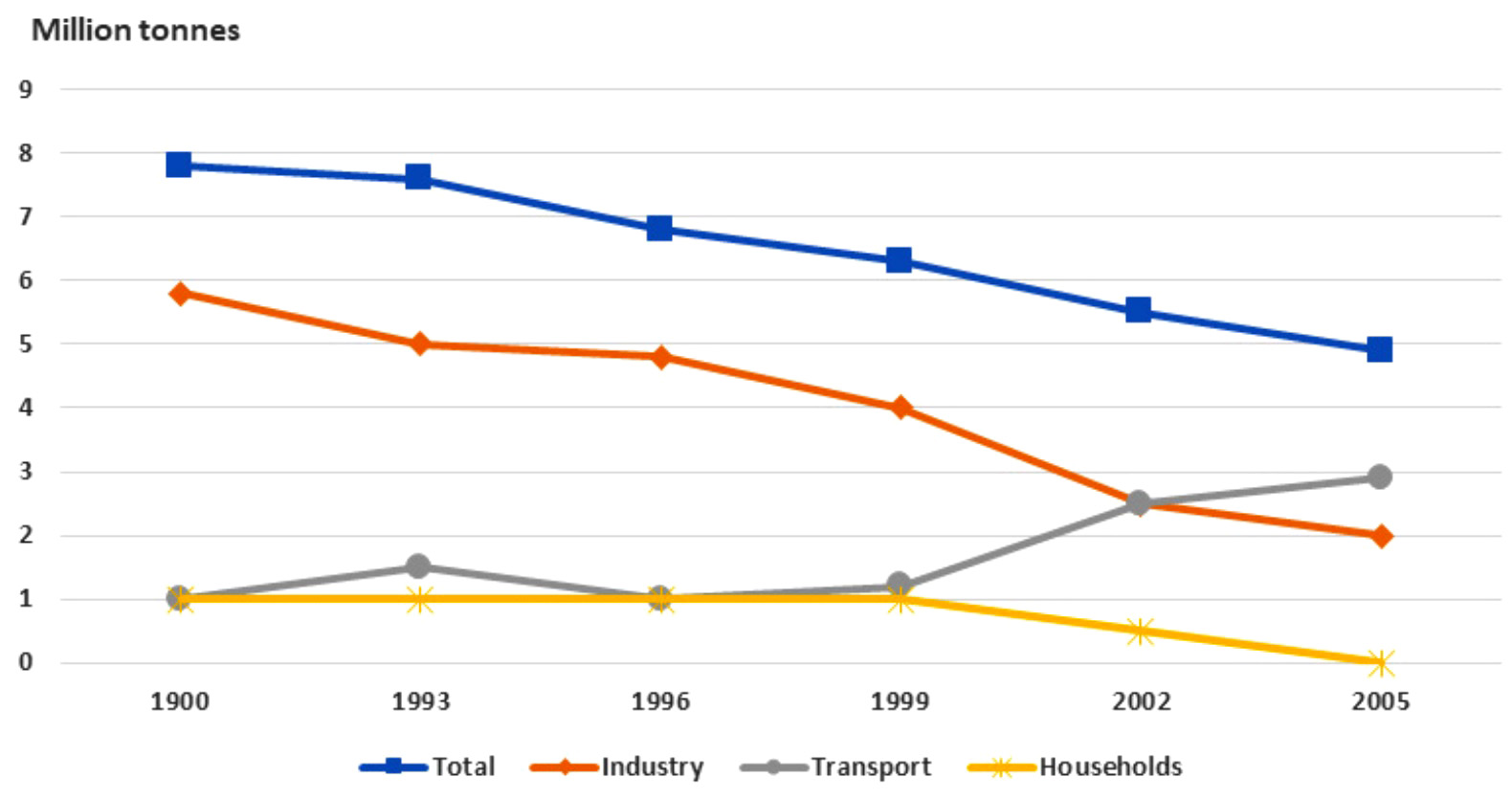IELTS Writing Recent Actual Test 27
WRITING TASK 1
You should spend about 20 minutes on this task
The graph below shows UK air pollutants in millions of tonnes, from three different sources, between 1990 and 2005.
Write at least 150 words.

WRITING TASK 2
You should spend about 40 minutes on this task
Write about the following topic:
Many university students live with their families, while others live away from home because their universities are in different places. What are the advantages and disadvantages both situations.
Give reasons for your answer and include any relevant examples from your own knowledge or experience.
Write at least 250 words.
SAMPLE ANSWER IELTS WRITING TEST 27
WRITING TASK 1The line graph compares the amount of emissions released into the air from three different sources, between 1990 and 2005.
Overall, the total number of air pollutants gradually declined over the period shown. While the figures for industry and households decreased over the period, the figures for transport saw an increase.
In 1990, a total of nearly 8 million tonnes of air contaminants were emitted from the three mentioned sources, with the largest figure belonging to industry, at 6 million tonnes. The amount of pollutants due to transport and households were the same, at approximately 1 million tonnes each.
The total number of pollutants discharged into the air gradually reduced over the next fifteen years, with the total figure declining to about 5 million tonnes by 2005. In addition, air pollutants from industrial activity also decreased over time, from just under 6 million tonnes in 1990 to about 2 million tonnes in 2005. Despite the figures for households and transport being equal at the beginning of the period, the quantity of air pollutants from transport saw a small increase to 3 million tonnes by 2005, while air pollutants from households experienced a drop to a negligible amount.
(196 words)
WRITING TASK 2While a number of university students opt to stay with their families when pursuing higher education, some choose to live far away. In this essay, I will analyze both the advantages and disadvantages of the two options.
On the one hand, there are several benefits of living with families when going to local universities. One compelling point is that students can minimize their expenditure as rent, utility bills and renovations are no longer concerns. Consequently, students can set aside financial worries and focus solely on their studies and improve their performance. Nevertheless, staying with families also means that students have to face with strict supervision and a lot of bindings. Living in their parents’ house, undergraduates will have to live by the norms and rules that their parents set, which can be restricting and frustrating at times.
On the other hand, living away from home for further education can be a life time experience for many students. In fact, living far away from home can teach students invaluable lessons that can assist them when joining the future workforce. When living alone, they will have to take care of themselves as well as learn to tolerate and overcome difficult times, which will not only help harness their many skills but also provide them with a sense of freedom. However, living on their own means that students will have to shoulder a lot more duties and responsibilities without the support from their family, ranging from securing their academic result to balancing their budgets. Constantly experiencing such unpleasant situations can put students under great pressure, which may result in stress-related illnesses.
In conclusion, though staying with families can relieve students of financial problems, it can as well deprive students of their freedom. In contrast, living in another accommodation, though provides salutary lessons, may cause a lot of discouragement to undergraduates.
(305 words)
